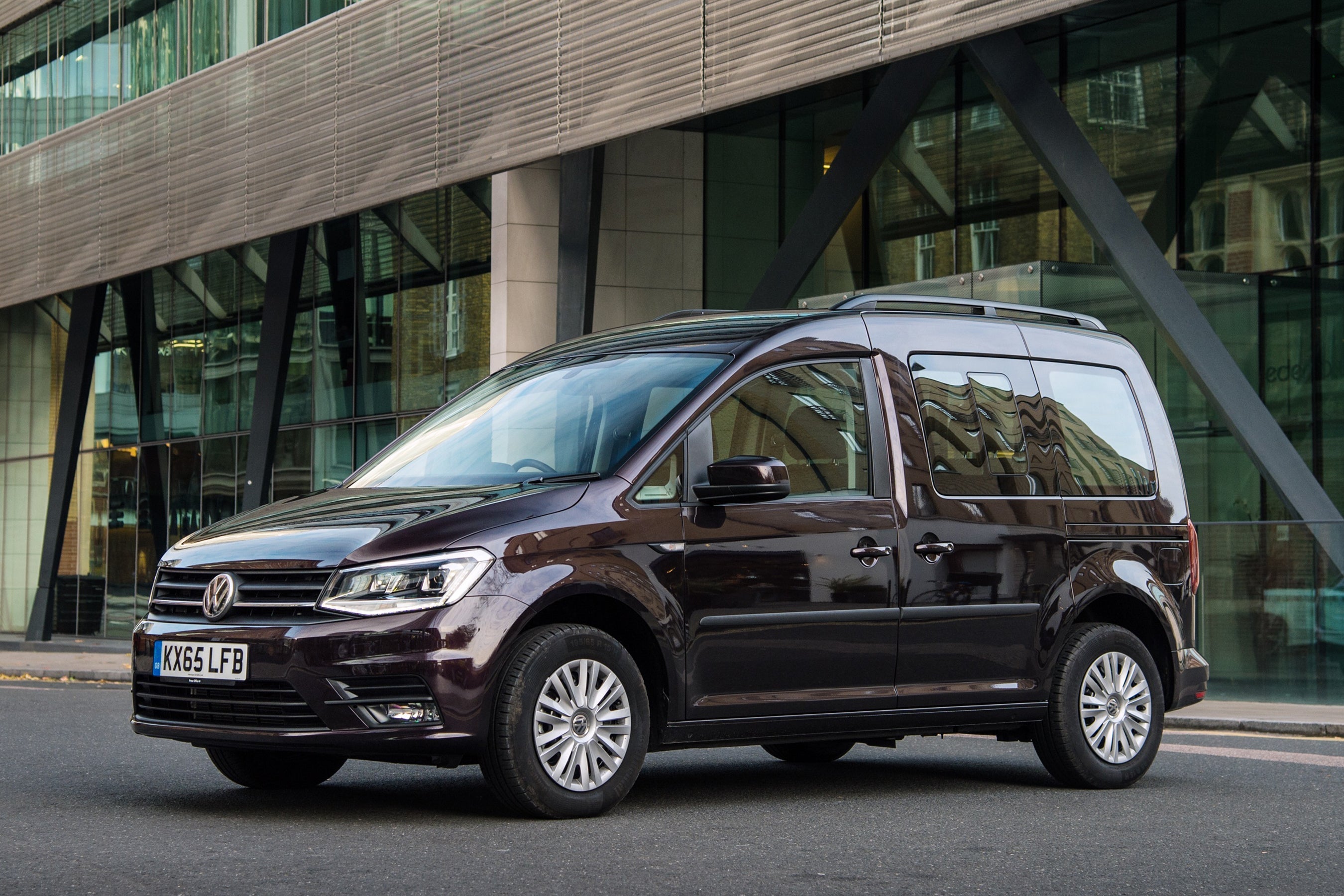Volkswagen Caddy Life (2015-2021) Review
Written by Andrew Brady
Quick overview
Pros
- Easy to drive
- Lots of van-like practicality
- Suitable for wheelchair conversion, available with seven-seats.
Cons
- A lot more expensive than other van-based MPVs
- Interior feels a little crude
- Starting to show its age
Overall verdict on the Volkswagen Caddy Life
"When it comes to affordable running costs and raw practicality, few MPVs can match the space and family-friendly nature of the Volkswagen Caddy Life."
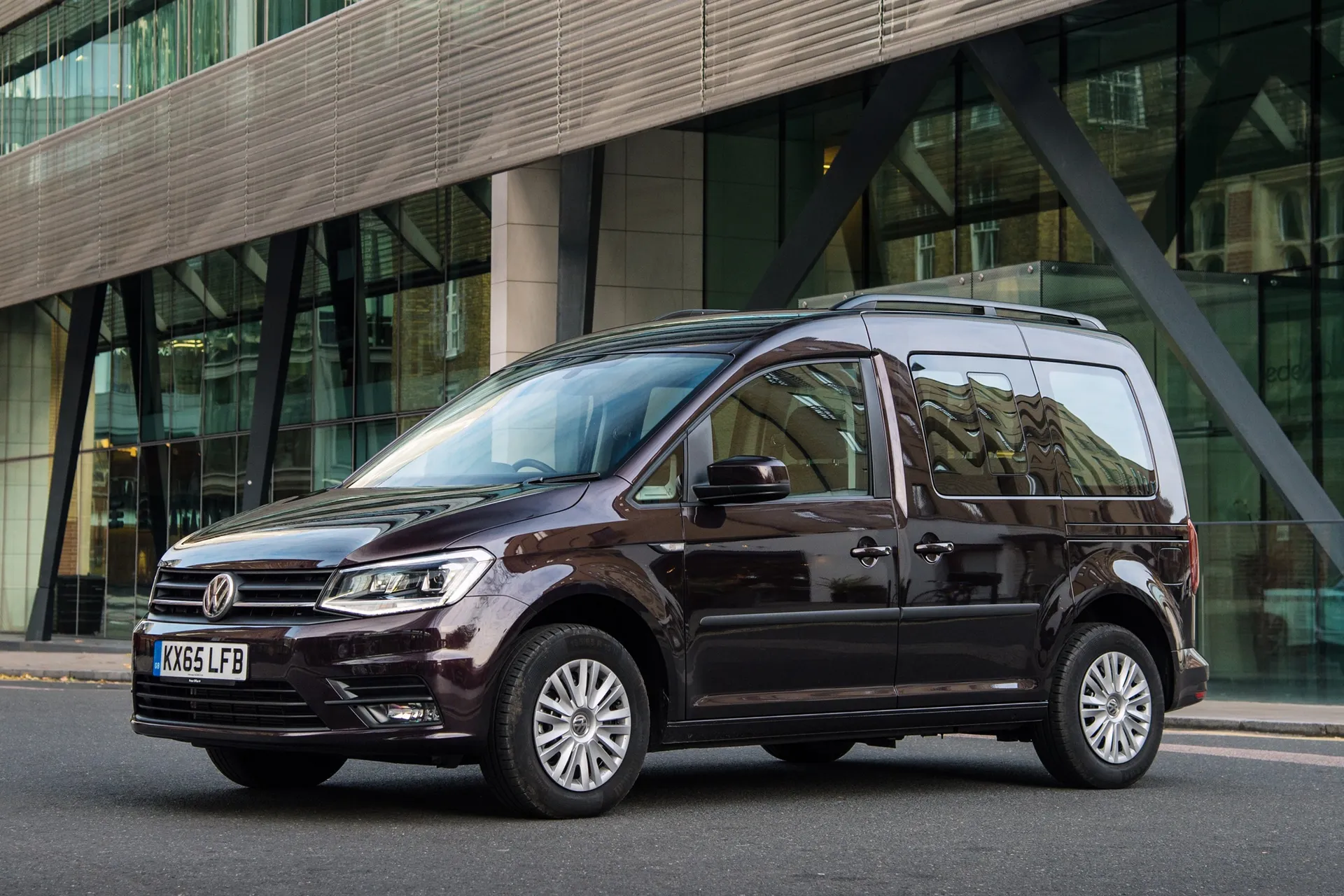
Based on the fourth-generation van, the Caddy Life is easy to live with thanks to dual sliding doors and car-like handling. It can also be specified with seven seats, although the premium price might put some off.
Van-based MPVs have come a long way since the era of the rattly and noisy window vans of the early 2000s and few vehicles illustrate this better than the Caddy Life. All models get five seats as standard and have a maximum of 3030 litres of storage, but this can be extended by an additional 340 litres with the longer Caddy Maxi Life.
As well as offering more space, the Maxi gets an extra row of seats, which means it can transform into a minibus of sorts for the school run with seven seats, although the third row can be a little cramped for adults due to the limited leg room.
All models use the same diesel engines as the van, with a Euro 6 compliant 2.0-litre TDI offered with 102PS or 150PS. Volkswagen claims as much as 60.1mpg from the 102PS unit and all engines are linked to a smooth five-speed or six-speed manual gearbox, with a six-speed DSG automatic available as an option.
On the road the Caddy is good to drive and handles very much like a standard family hatchback, with light steering and lots of visibility from the large windscreen and side mirrors. The quality of the ride is also impressive, with its soft suspension providing lots of protection from potholes and speed bumps.
The interior is a little crude in places and the Caddy does show its van origins with lots of cheap plastics and a basic dashboard. However, there's lots of useful storage, with deep door pockets and useful cubby holes and cup holders. DAB radio and Bluetooth are also fitted as standard.
Admittedly, some will be put off by the Caddy's boxy looks and no-thrills interior, but the Life range is difficult to fault when it comes to practicality and durability. What's more, with its suitability for wheelchair conversion and its supportive seats, the Caddy has lots of likeable traits for older drivers too.
If you're looking for the larger seven-seat version, read our Volkswagen Caddy Maxi Life (2015-2021) review.
While if you're after the newer version, you need our Volkswagen Caddy (2021-) review.
What other cars are similar to the Volkswagen Caddy Life?
If you're after a compact no nonsense MPV in a similar vein to the Caddy Life, the Citroen Berlingo and Vauxhall Combo Life should be on your list along with the Ford Tourneo Connect.
Comfort and design: Volkswagen Caddy Life interior
"Both the five-seater and seven-seater versions of the Caddy Life are big on space, which means it will meet the needs for families who find standard MPVs lacking in storage. "
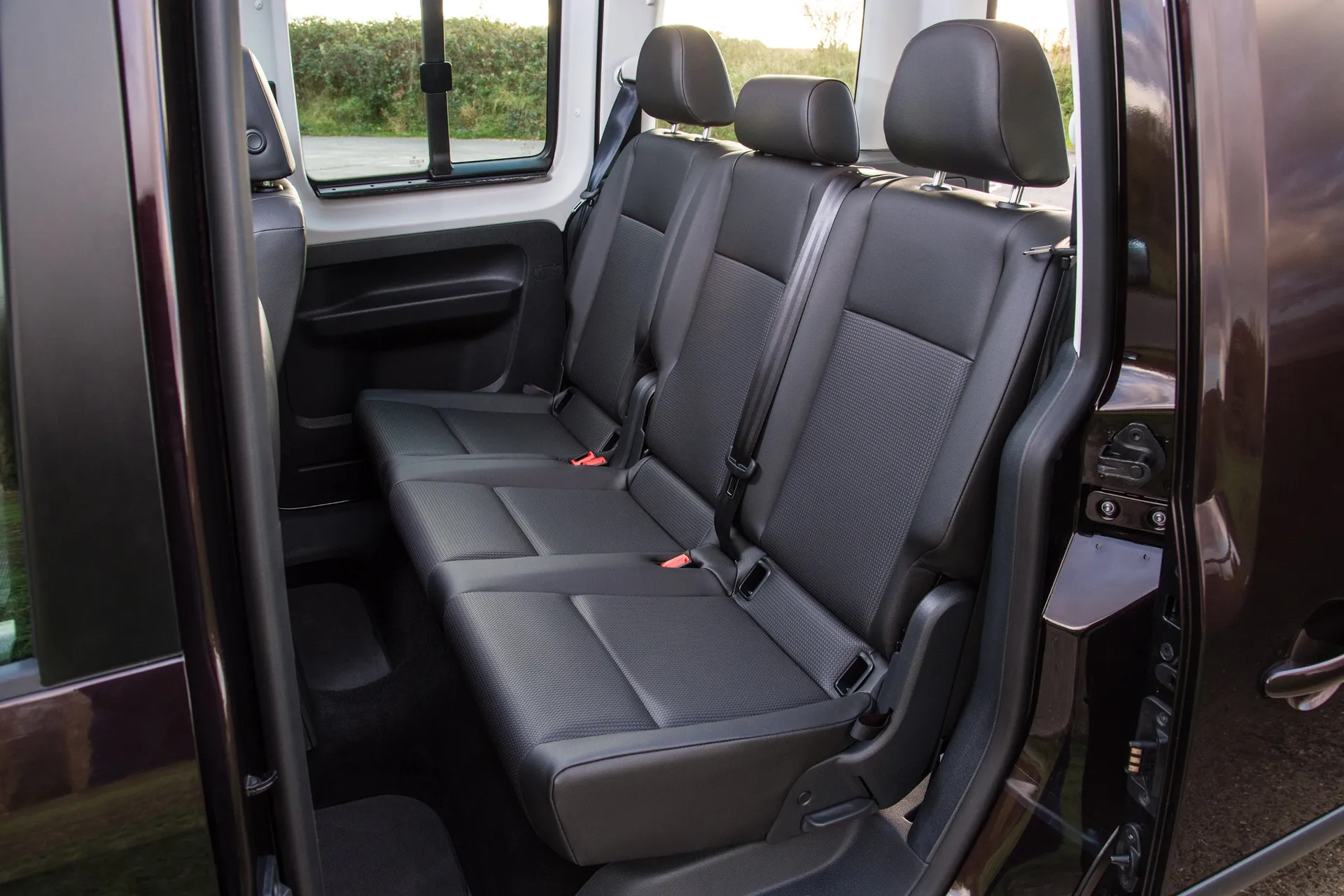
As a five-seater the Caddy Life is spacious and comfortable, with both the front and rear seats providing lots of upper leg and lower back support. The interior is also covered in a layer of hardwearing plastic, but this has been carried over from the van and doesn't feel particularly plush.
Owing to the Caddy's high roof, there is no trouble with head room and there are also lots useful cabin storage, with deep door pockets, cubby holes and a roof shelf above the driver for loose documents and maps. The rear also has windows that slide open and lots of storage points, with two located under the floor, which are perfect for hiding away valuables when parked up.
The Maxi versions get seven-seats as standard and these are fine for children, but not suitable for adults due to the limited leg room. The Maxi Life is 420mm longer than the standard model and offers a considerable 3370 litres with the seats removed, while the standard model has 3030 litres.
Unfortunately maximum storage can only be obtained by removing the second and (in the Maxi's case) third row of seats, which can be hard work due to their bulky and heavy nature. They also have to be stored somewhere, which again is awkward should you not have a garage.
Both the second and third row can be folded flat or double folded forwards though and this provides plenty of space for carrying large items. All Caddys get a set of twin sliding doors as standard, which makes it easy to get people in and out of the vehicle. It also makes parking simple, due to the lack of space needed to open the rear doors.
What engines and gearboxes are available in the Volkswagen Caddy Life?
"The Caddy Life is surprisingly good to drive and its handling feels closer to a large family hatchback than a commercial vehicle."
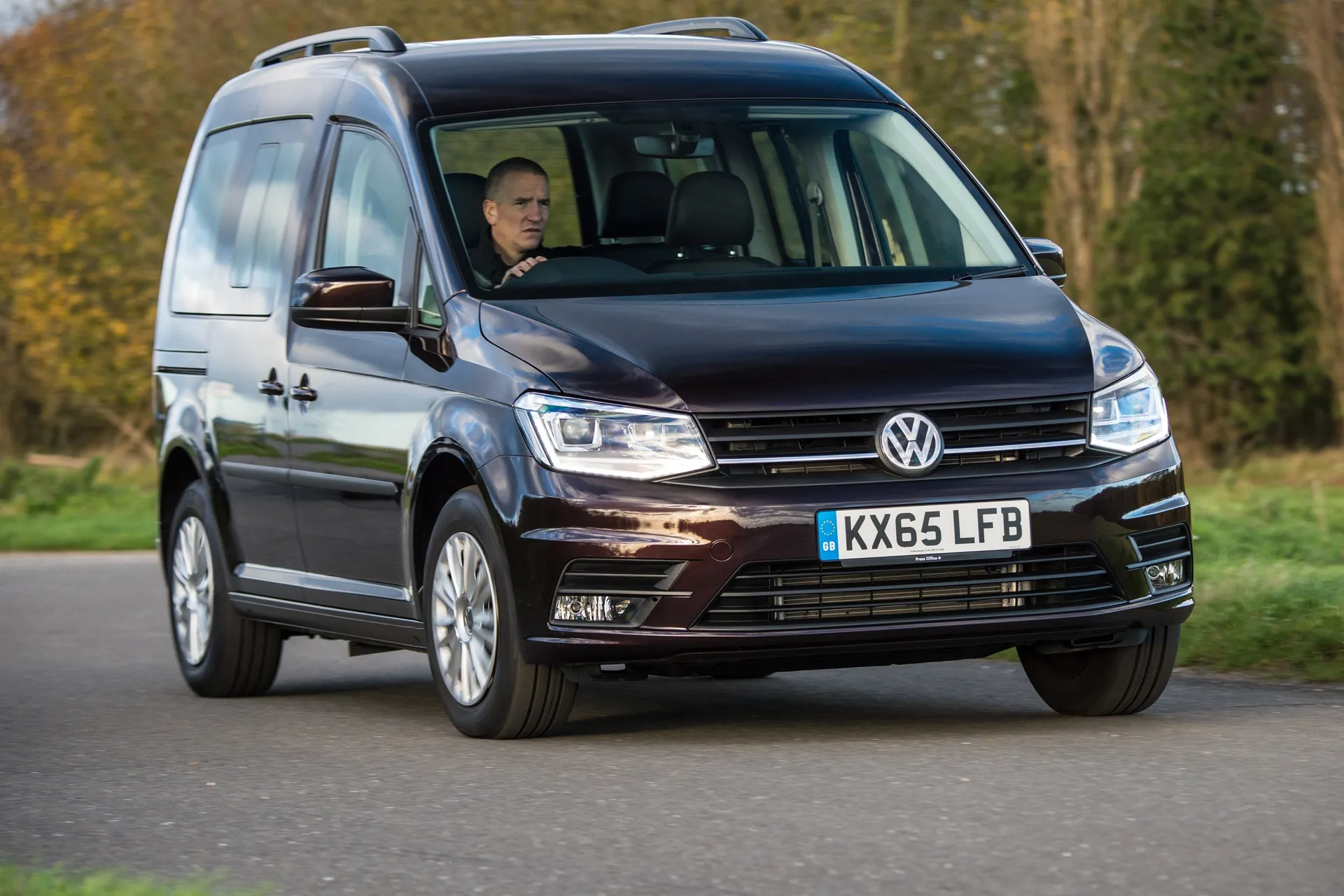
Power comes from Volkswagen's latest crop of Euro 6 compliant 2.0-litre TDI engines, offered with 102PS or 150PS. A smooth shifting five-speed manual gearbox is fitted as standard and returns effortless gear changes, with the engine's 250Nm of torque providing enough power for the driver to pull away from tight junctions or congested roundabouts without fuss.
Admittedly, the 102PS unit feels a little limited under heavy acceleration on the motorway, but it provides more than enough power to cruise along at 70mph.
A more powerful 150PS engine is available with a six-speed manual 'box and 340Nm of torque that provides a notable boost in acceleration and would suit Maxi buyers. The 150PS makes the Caddy more responsive when carrying a full boot and seven people. As you might expect, the extra power diminishes economy, with the Life and Maxi Life returning a respective 56.5mpg and 55.4mpg. CO2 emissions also climb to 131g/km and 134g/km.
The Caddy rides the road well, with good levels of cushioning in the suspension to cope with pot holes, drain covers and speed bumps. Indeed, even when empty, the Caddy is surprisingly calm, which cannot be said for some other van-based MPVs that have a tendency to bounce along when carrying one or two passengers.
The steering is also good, with lots of feedback at higher speeds but a light operation below 30mph. Parking and navigating towns or cities is also painless, thanks to the Caddy's large windscreen and generously sized wing mirrors. However, road noise levels are quite high and the large wing mirrors generate noticeable exterior wind noise at motorway speeds.
MPG and fuel costs: What does a Volkswagen Caddy Life cost to run?
"As you'd expect of a van-based car, there are economical engines fitted throughout the Caddy range."
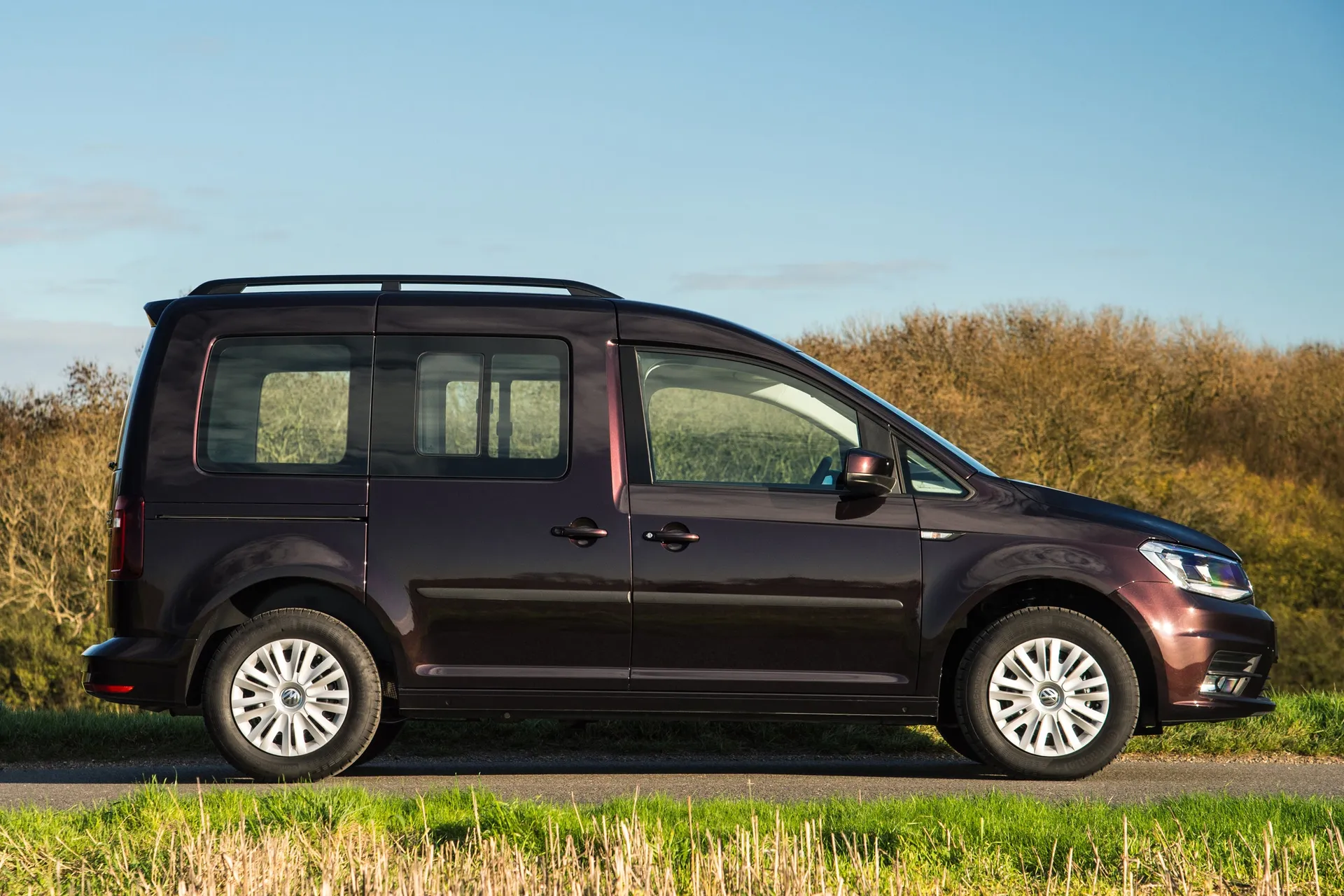
The entry-level 102PS model is the most efficient, returning a claimed 60.1mpg and emitting 122g/km of CO2. The economy figures drop a little for the larger Maxi model, with an official 58.9mpg and 125g/km.
What equipment does the Volkswagen Caddy Life have?
"Equipment includes a colour infotainment system with DAB, Bluetooth, heated windscreen, post-collision braking, daytime running lights."
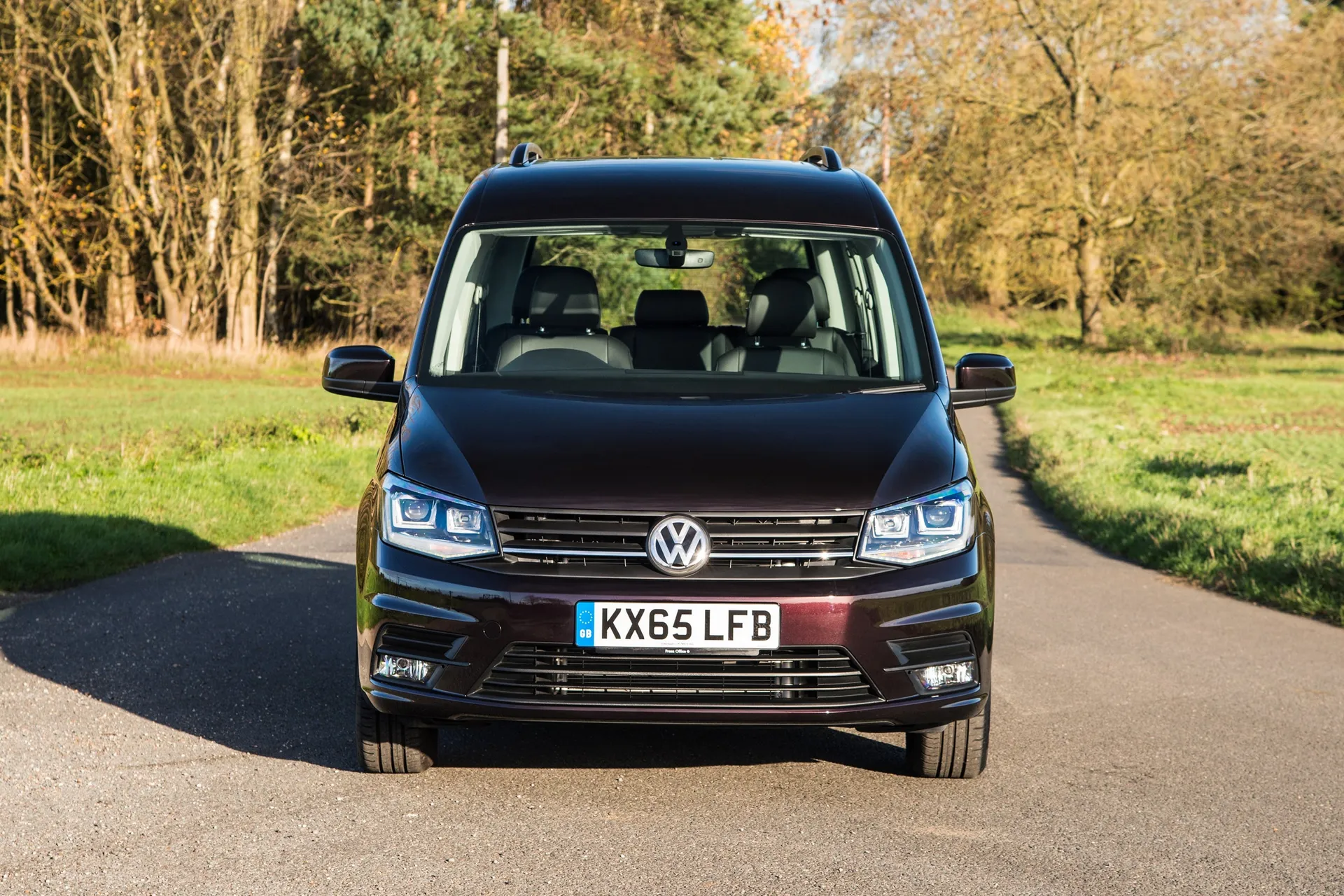
There are also BlueMotion Technology modifications, for added efficiency and lower emissions, as standard. As well as additional systems such as Brake assist, City Emergency Braking and cruise control.
A 2018 facelift saw increased safety levels with the fitment of autonomous emergency braking (AEB - Front Assist with City Emergency Braking) and driver alert as standard across the entire range. All Volkswagen vans now come with standard AEB.
All three trim grades, Startline, Trendline and Highline, feature more standard equipment than before. All gain a leather multifunction steering wheel and multifunction display (in addition to AEB and Driver Alert), while 2018 Trendline models now feature climatic air conditioning as standard. Highline models gain Volkswagen’s Discover Media satellite navigation system as standard.
Get our latest advice, news and offers
Keep me updated by email with the latest advice, news and offers from heycar.
By submitting you agree to our privacy policy
